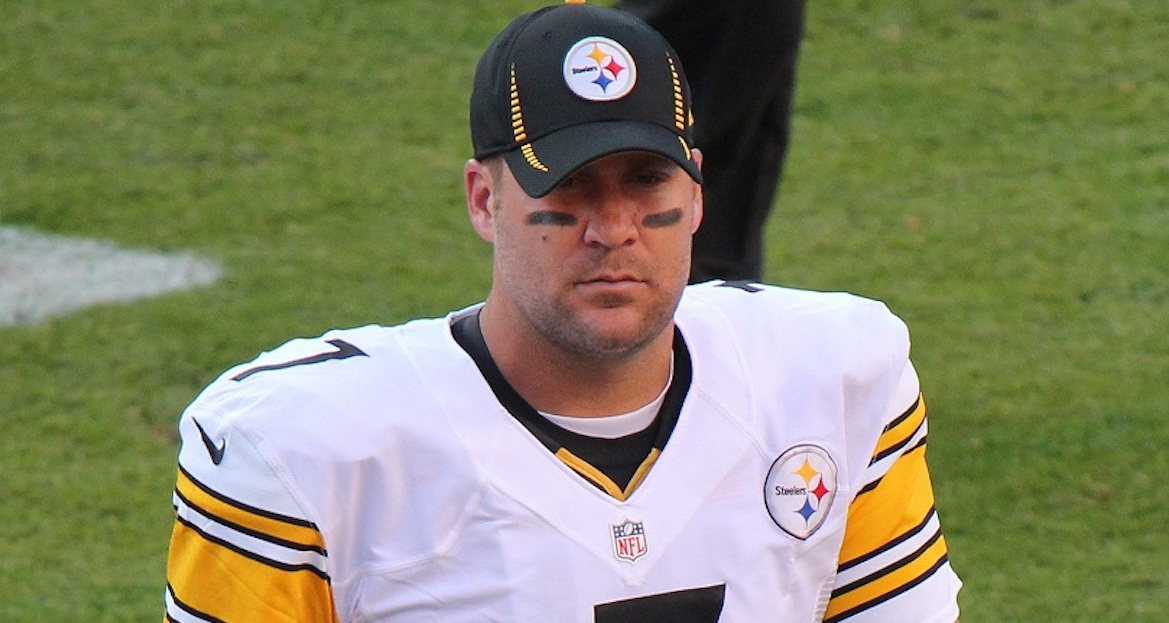
Mentoring Should Come With The Territory For NFL Starting Quarterbacks
Back in April before the NFL’s new class was selected in Dallas, Seahawks quarterback Russell Wilson hosted an ESPN special called QB2QB, billed as Wilson mentoring top NFL prospects like Baker Mayfield and Mason Rudolph. Wilson came across as a solid interviewer with genuine curiosity – Where did you get those leadership skills, Mason? – but moreover as a secure leader who understands his rightful place in gifting knowledge to the next wave of quarterbacks.
Despite all the rumors of tension in Seattle, it’s impossible to believe that had the Seahawks drafted Rudolph (or any QB) Wilson would grandstand and publicly lay down ice the way Ben Roethlisberger did. (Rudolph’s new teammate said on the Cook and Poni Show last week that he didn’t see how drafting the rookie quarterback would “help the team win now.”) Or that Wilson would ignore texts and phone calls like Joe Flacco has reportedly done to new protégé Lamar Jackson.
Brett Favre was famously surly to Aaron Rodgers and even recently said “it wasn’t my job to mentor Aaron Rodgers.”Tom Brady’s personal trainer may have locked then backup Jimmy Garoppolo out of the TB12 facility when he had an appointment. (Garoppolo later denied this.) There are myriad more purported examples of established quarterbacks not going out of their way for the person behind them on the depth chart. The true ones are all atrocious.
NFL quarterbacks are complex creatures with various paths to entry. Some have been anointed since high school. Some have clawed their way up the food chain. Some have had more detours than Ms. Pac Man escaping Inky and Blinky. But they all have one thing in common: a relatively defined maximum professional lifespan that begins at approximately 22 and ends at approximately 36. Most don’t make it even half that long and very few enjoy longer careers. No other profession with the possible exception of supermodel and some Olympic sports have shorter shelf lives. Roethlisberger, who has threatened to retire every season for almost half a decade, should understand the ticking clock more than anyone. He should simultaneously take solace in the fact that he’s largely considered a top five NFL quarterback and even more largely considered a shoo-in for the Hall of Fame. But instead he felt the need to publicly showcase his insecurity.
Sure, there’s some human nature at play. Roethlisberger doesn’t want to help the “competition.” It’s a rather ridiculous notion given the recent lack of precedent of even decent quarterbacks supplanting future Hall of Famers in their primes but still an innate concern. As long as Roethlisberger can perform, he’s a starter. Ask Nick Foles.
Quarterbacks, like most humans, don’t want to face their career mortality. Giving advice to a young up and coming is a pretty striking sign that you are no longer a young up and comer. Roethlisberger also doesn’t want to share state secrets or likely give up his own time in the film room to dissect Rudolph’s mechanics for five hours a day. The brand of mentoring that he should be naturally offering can be much simpler than that.
Roethlisberger is the established guy. He’s the one who’s made it. A Super Bowl champion. He knows things. He’s 36-years-old. Just a simple welcome and a little encouragement from time-to-time can go a long way, no different from a mentor-mentee relationship in any hard-to-navigate profession.
There are varying degrees of mentorship and they can all be profound. Some are sought out. In the recent documentary The Zen Diaries of Garry Shandling, a college-aged Shandling got some jokes in the hands of his favorite comedian, George Carlin. Carlin returned them, saying there was something funny on every page and that if he was serious about comedy, he should pursue it. Shandling packed up and moved to LA a week later. In the NFL they are mostly prearranged, given that players don’t get to choose their employer out of the gate, but they are critical given the minuscule number of humans who have actually been NFL quarterbacks. Packers backup QB Brett Hundley has gushed about Rodgers’ mentorship when forced to step in. Chiefs QB Patrick Mahomes recently lauded Alex Smith’s mentoring efforts, insisting that Smith would offer the rookie input to rookie if he deemed it helpful. Some quarterbacks have thrived in the thorny jungle that is the NFL, some have been eaten up and wound up in jail. Forget playing time and dynasty, anyone with sliver of conscientiousness would want to get this kids on the right track. Calling a radio station and insisting that one of your current quarterbacks should not have his job is probably not the best first tactic.
No one expects Roethlisberger to be those guys. Yet given Roethlisberger’s unique status and longevity of career I do believe it his inherent responsibility, but also that of any established quarterback, to mentor in some form.
Mentoring doesn’t have to be time-consuming. It’s not self-sabotage. It’s basic human decency.



